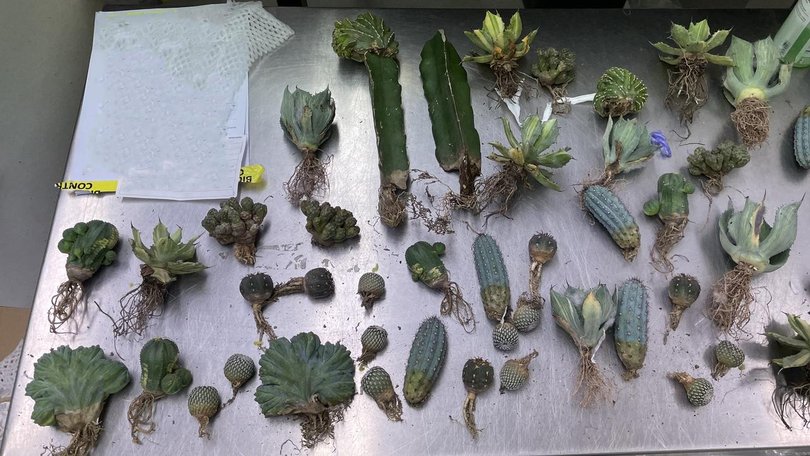Kirsten Mae Fearn: Sydney customs officers made a prickly discovery in lingerie package
A woman has been caught red-handed after customs officers uncovered a thorny truth inside packages labelled as lingerie and shoes.

A woman has been caught red-handed after customs officers made a prickly discovery when opening packages purporting to contain lingerie and shoes.
Kirsten Mae Fearn pleaded guilty to 14 biosecurity charges at Brisbane Magistrates Court in July after she repeatedly imported illegal plants to sell online.
Department of Agriculture, Fisheries and Forestry officers cottoned on to the scheme after packages arrived in Sydney via air cargo from Hong Kong between February 2021 and March 2024.
Sign up to The Nightly's newsletters.
Get the first look at the digital newspaper, curated daily stories and breaking headlines delivered to your inbox.
By continuing you agree to our Terms and Privacy Policy.The packages were declared to contain lingerie and shoes but when they were opened, biosecurity officers found 57 cacti and succulents.
Investigators then found another 50 illegal succulents at Fearn’s Brisbane home nursery.
Deputy Secretary of Biosecurity, Operations and Compliance Justine Saunders said Fearn was repeatedly warned about the behaviour but she continued the illegal activity.
“The department elected to deal with this via criminal prosecution because of the seriousness of the matter,” Ms Saunders said.
“Our biosecurity laws are vital to the health of Australia’s economy and environment.
“Those who risk Australia’s environment by deliberately trying to bypass our strict requirements will be caught and face the consequences.”
During court proceedings, Fearn admitted to the ongoing illegal false declarations and importation of the plants, which she intended to sell online through her business.
She faced a maximum penalty of 10 years’ jail and a $600,000 fine.
After pleading guilty on July 25, Fearn was sentenced to six months’ imprisonment and released immediately on a Recognisance Release Order, meaning she was required to agree to certain court conditions.
Ms Saunders said this should serve as a warning to prevent others from importing biosecurity threats at Australian borders or in mailrooms.
“Australia has an enviable biosecurity record,” she said.
“We protect this through education and targeted regulation. We all need to play our part in keeping Australia safe.”
